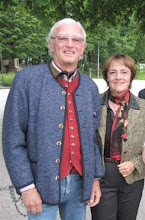Kindle edition, published by AmazonCrossing, Seattle
Originally published by Remzi Kitabevi, Istanbul, 1999
Reviewed for Peacehawks by Jamie Arbuckle
Introduction
The author describes her book succinctly and accurately in her
introduction:
This book tells the story of the heroic and honorable people who
survived the horrendous war in Bosnia that took place from April 5, 1992 to
February 26, 1996, during which Sarajevo was held under siege for 1,395 days,
without regular electricity, communications or water. Ten thousand six hundred Bosniaks – of whom 1,600 were children – lost
their lives. Those who survived were
pressured to accept the Dayton Agreement.
With this treaty, 51 per cent of Bosnia was left to Bosnia and
Herzegovina, while the Serbs, who comprised only 34 percent of the population
before the war, gained 49 per cent of the land. (location 31).
She has thus told us both what this book
is: a vivid portrayal of the events in Yugoslavia (as it still was) in 1991 and
92, seen through the eyes of the Bosniak community; and what it is not, which
is history.
This
book may be read and enjoyed for what it
is: an entertaining and well-written novel.
It is best in depicting the slow motion horror of the unveiling of the malevolence and cruelty of a very few
men, who were determined to wreck a
country with no idea of what was to
replace it. The effects of this nihilism
on the lives of common people, and the difficulty of replacing a society which
has been so thoughtlessly and deliberately wrecked, is something we need
to hear and not forget.
On the other hand, novels are fiction, and
will vary in their usefulness as history. One who is genuinely interested in
the history of these events will need to look elsewhere, because there are some
gaps here. First, the importance of the relations between the Bosniaks and the
Turks is in my view exaggerated, and my suspicions are fueled when I notice how
this exaggeration seems to reflect a Turkish government policy about which I am
also skeptical. Second, an entirely scurrilous attack on the UN and on one UN
officer repeats the scapegoating of 20 years ago. Neither of these apparent plot devices are
essential to the story, and together they seriously undermine the credibility
of this book.

